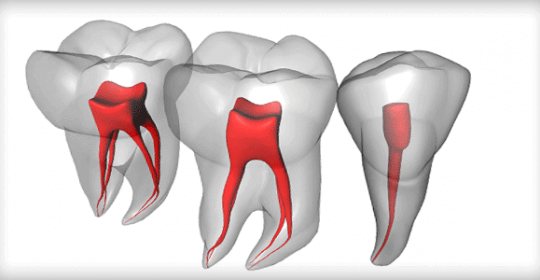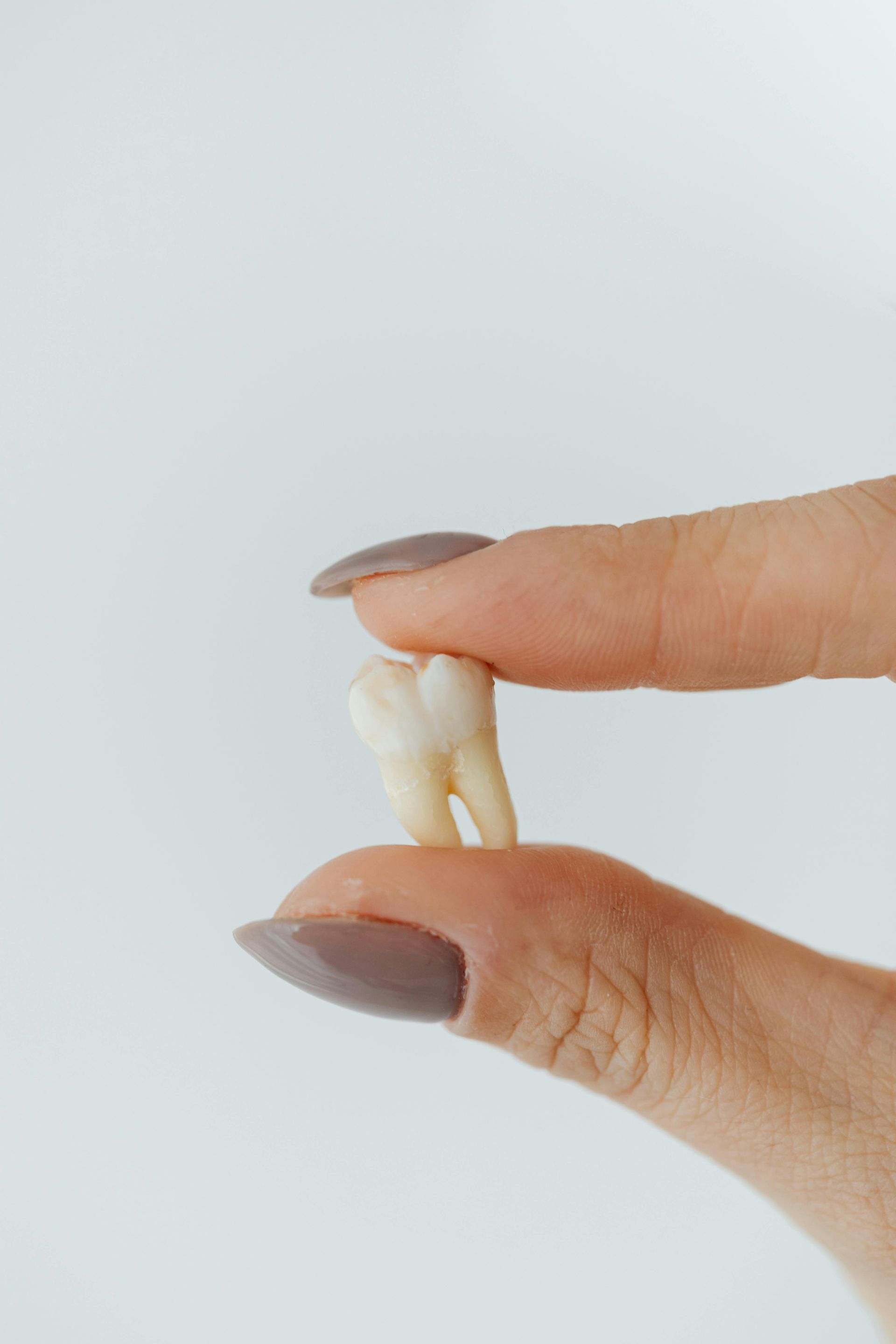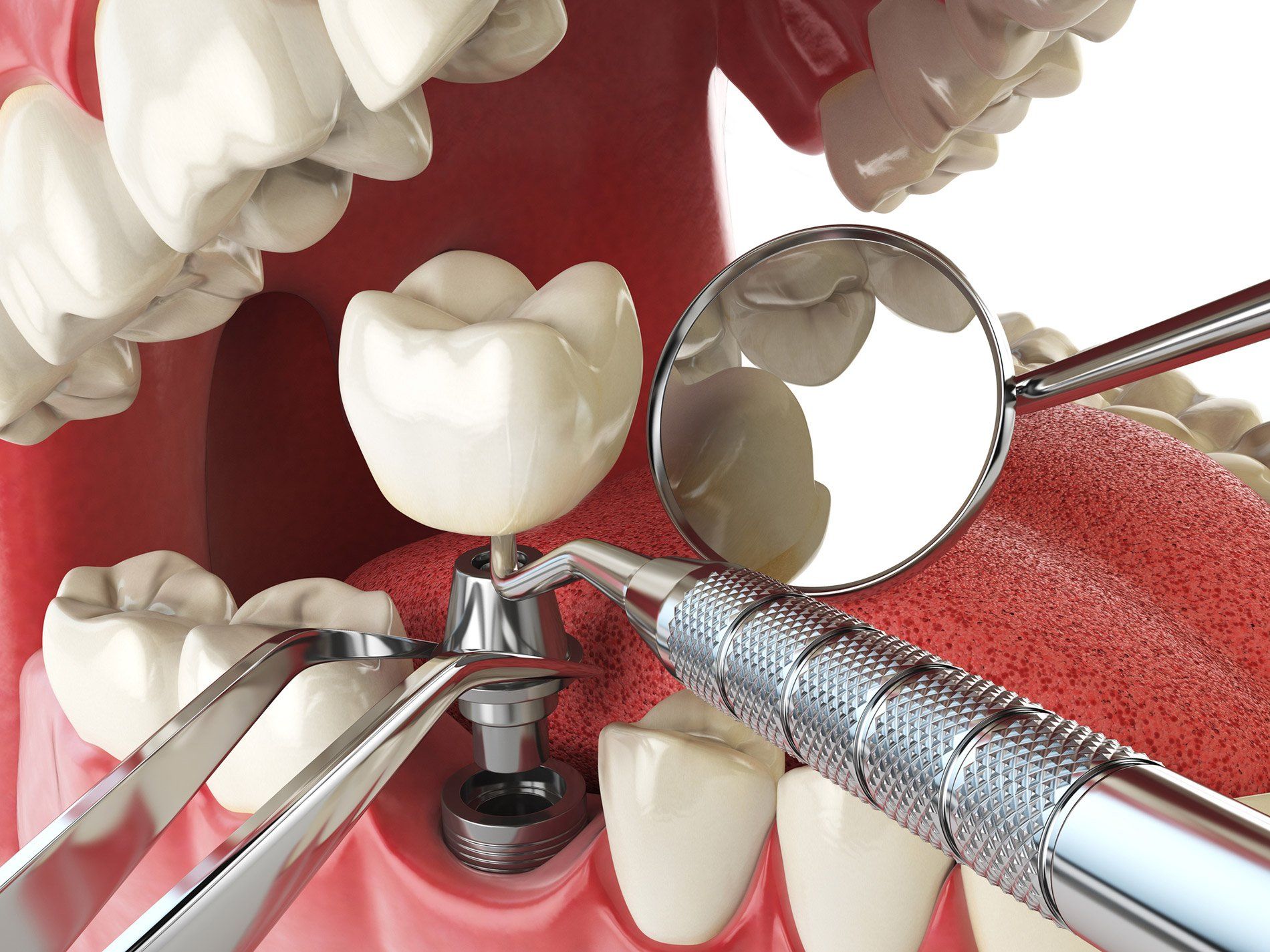Root Canal
Getting to the Root of Things

Do you know why root canal treatments hurt? Well, they don’t, actually. It’s a trick question. People think they’re painful because of all the pain leading up to the procedure. Obviously, not every bit of discomfort warrants a visit to the dentist, but if you’ve been feeling a constant toothache, you probably don't want to wait too long. So, when do you visit the dentist? Let’s take a look at what the American Association of Endodontists suggests.
Why a Root Canal is Sometimes Necessary
Root canal treatment is required when the nerves within the tooth’s root have been damaged by trauma or decay. To repair this damage, the tooth would need to be treated in almost the exact same manner as a filling, except that treatment would extend to the tooth’s roots.
Pay Attention to Pain
When your teeth bother you, this is a signal your body is giving you that something is not right in your mouth. Here are three of the most common symptoms one can experience that may necessitate root canal treatment:
1. Sensitivity to Hot and Cold
If you’ve experienced a certain degree of gum erosion, you’ve likely also had to deal with sensitive teeth. Some degree of sensitivity is common and in a sense, normal. This sort of pain is also transient, meaning the pain doesn’t stick around for more than a few moments. If it lasts for minutes at a time, or worse, days, you should see your dentist. Persistent discomfort can be an indicator of a loose filling, a small cavity, or the early stages of root trauma.
2. Pressure Sensitivity
This type of pain can often be an indicator of a cracked tooth, root trauma or (again) a small cavity. Pressure sensitivities are painful as all get-out, and biting down on something as soft as a French fry could send you reeling. If you experience this sort of pain, you’ll want to definitely visit the dentist before the problem advances. It’s worth noting that some people experience this sort of sensitivity after dental work. It depends on the individual, but typically this pain goes away in 2-4 weeks IF you have just been to the dentist. In some individuals, it can take months. Don’t ever wait that long without consulting with your doctor, however. Lingering pain (even after an exam) should be brought to the attention of your doctor after a week has passed. They’ll then fill you in on what your next steps should be.
3. Dull Aches, Pressure, and Constant Pain
You’d think if the above three descriptors were a constant companion in one’s daily life, it would prompt a person to pick up the phone and call the dentist. Unfortunately, that’s not always the case. And, this is the reason why people say a root canal is painful. Ignoring constant pain and pressure in one’s mouth is not good risk management. Such pain can be caused by an abscess, a serious infection that can spread to the bone. Infections of this nature can be fatal if not treated, so it’s always important that constant pain and pressure never be ignored.
Keep your health and your teeth, by minding your body’s signals. The vessel we call home is pretty darn good at letting us know when we need to confer with a professional – don’t ignore its pleadings!
Schedule a Root Canal Appointment Today!










